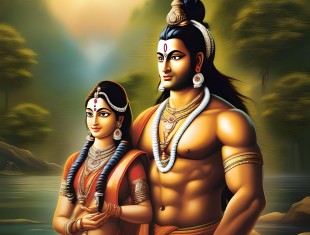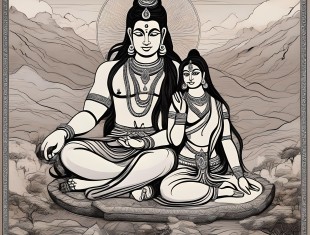Maha Shivratri

Description
Maha Shivratri is a major Hindu festival dedicated to Lord Shiva, one of the principal deities in Hinduism. The festival is observed with great devotion and reverence by Shiva devotees across India and around the world. Here are some key aspects of Maha Shivratri:
Significance: Maha Shivratri, which means "The Great Night of Shiva," is believed to be the night when Lord Shiva performed the Tandava, a cosmic dance of creation, preservation, and destruction. It is also considered the night when Shiva married Parvati.
Date: The festival is observed on the 14th night of the dark fortnight (Krishna Paksha) in the month of Phalguna (February or March) in the Hindu calendar. The date varies each year based on the lunar calendar.
Rituals: Devotees observe fasting, perform night-long vigils, and offer special prayers to Lord Shiva. Temples dedicated to Shiva are decorated and host various rituals throughout the night. Devotees offer milk, honey, water, and bael leaves to the Shiva Lingam, symbolizing purification of the soul.
Observances: Many people stay awake all night, chanting prayers and singing devotional songs in praise of Lord Shiva. Meditation and introspection are also important aspects of the celebration. Some devotees observe a strict fast, abstaining from food and water, while others follow a partial fast.
Spiritual Importance: Maha Shivratri is considered an auspicious time for spiritual growth and seeking blessings from Lord Shiva. It is believed that sincere devotion and prayers on this night can absolve sins and lead to moksha (liberation from the cycle of birth and death).
Maha Shivratri is a festival that highlights the profound spiritual and cultural heritage of Hinduism, emphasizing devotion, self-discipline, and the pursuit of inner peace.
License
It can be used for both Commercial and Personal use after a legitimate purchase from the platform, ranmira.in. Reselling of the digital content will breach the Intellectual Property rights and is strictly prohibited.







